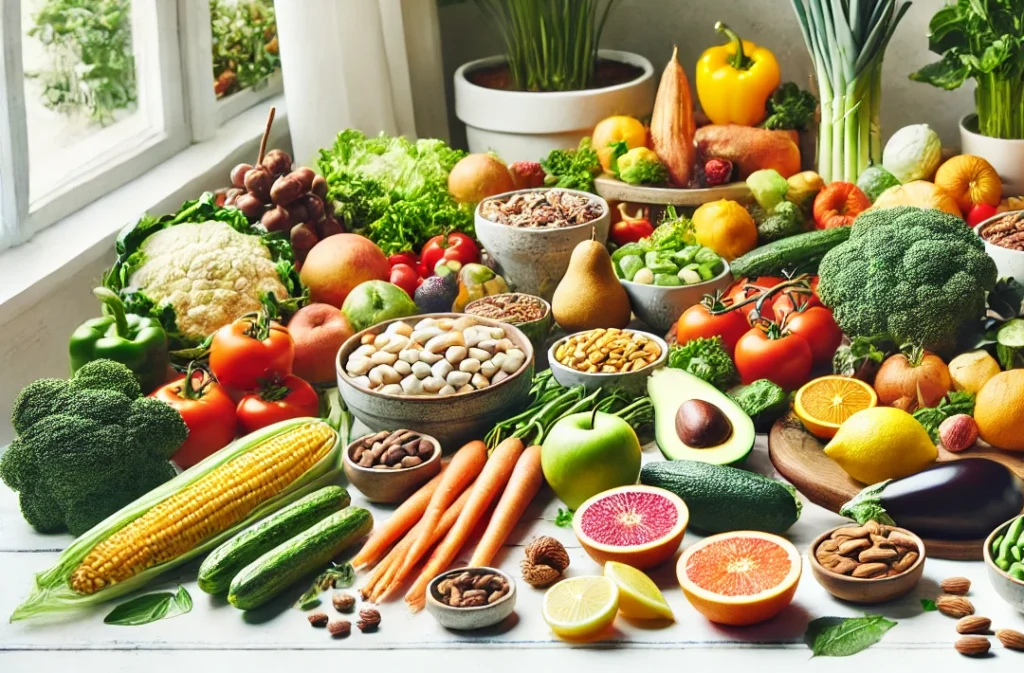Plant-based eating is more than just a trend—it’s a science-backed way to improve your health, protect the planet, and feel your best. A 2024 study by Harvard Medical School found that people who follow a plant-based diet have a 25% lower risk of heart disease, 15% lower risk of diabetes, and even live longer. Whether you’re going fully vegan or simply adding more plants to your plate, here’s how a plant-focused diet can transform your health—and how to get started.
Why Plant-Based Eating Works
The Science Behind It
- Nutrient Density: Plants are packed with vitamins, minerals, and antioxidants that fight inflammation and disease.
- Fiber Power: Plant-based diets are rich in fiber, which supports digestion, gut health, and weight management.
- Lower Cholesterol: Plants are naturally cholesterol-free and low in saturated fats, reducing heart disease risk.
The Cost of a Meat-Heavy Diet
- Heart Disease: High intake of red and processed meats is linked to higher cholesterol and blood pressure.
- Diabetes Risk: Diets high in animal fats can lead to insulin resistance.
- Environmental Impact: Meat production contributes significantly to greenhouse gas emissions and deforestation.
Health Benefits of a Plant-Based Diet
❤️ Heart Health
- Lowers LDL (“bad”) cholesterol and blood pressure.
- Reduces inflammation, a key driver of heart disease.
Diabetes Prevention
- Improves insulin sensitivity and blood sugar control.
- Helps maintain a healthy weight, a key factor in diabetes prevention.
Brain Health
- Antioxidants in plants protect brain cells from damage.
- Omega-3s from sources like flaxseeds and walnuts support cognitive function.
Gut Health
- Fiber feeds beneficial gut bacteria, improving digestion and immunity.
- Reduces the risk of conditions like irritable bowel syndrome (IBS).
How to Transition to a Plant-Based Diet
Start Small
- Meatless Mondays: Dedicate one day a week to plant-based meals.
- Swap Ingredients: Replace meat with beans, lentils, or tofu in your favorite recipes.
- Add, Don’t Subtract: Focus on adding more fruits, veggies, and whole grains rather than cutting out foods.
️ Build Balanced Meals
- Protein: Beans, lentils, chickpeas, tofu, tempeh, and edamame.
- Healthy Fats: Avocados, nuts, seeds, and olive oil.
- Whole Grains: Quinoa, brown rice, oats, and whole-wheat bread.
- Fruits and Veggies: Aim for a rainbow of colors to maximize nutrient intake.
Stock Your Pantry
- Canned Goods: Beans, lentils, and diced tomatoes.
- Whole Grains: Quinoa, brown rice, and whole-wheat pasta.
- Spices and Herbs: Turmeric, cumin, garlic powder, and fresh herbs for flavor.
Tools to Support Your Plant-Based Journey
| Tool | Purpose | Why It’s Useful |
|---|---|---|
| Forks Over Knives | Recipes and meal plans | Great for beginners and seasoned plant-based eaters. |
| Cronometer | Nutrient tracking | Ensures you’re meeting your nutritional needs. |
| HappyCow | Find plant-based restaurants | Helps you dine out while staying on track. |
Expert Insights: The Benefits of Plant-Based Eating
“A plant-based diet is one of the most powerful tools we have for preventing chronic diseases and promoting longevity.”
– Dr. Michael Greger, Author of How Not to Die.
“You don’t have to go fully vegan to reap the benefits. Even small shifts toward plant-based eating can make a big difference.”
– Dr. Neal Barnard, President of the Physicians Committee for Responsible Medicine.
Real-Life Benefits of Plant-Based Eating
1. Weight Management
Plant-based diets are naturally lower in calories and higher in fiber, helping you feel full longer.
2. Improved Energy
Nutrient-dense foods provide sustained energy without the crashes.
3. Clearer Skin
Antioxidants and hydration from fruits and veggies promote healthy, glowing skin.
See also The Science of Happiness: How to Cultivate Joy in Everyday Life
The Bottom Line
A plant-based diet isn’t just good for you—it’s good for the planet. By incorporating more plants into your meals, you can improve your health, reduce your environmental footprint, and discover a world of delicious, nutritious foods. Start small, experiment with new recipes, and enjoy the journey to better health.



